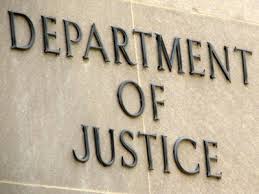Judicial Oversight of Deferred Prosecution Agreements
 With the increasing criticism of DOJ’s use of deferred prosecution agreements (“DPAs”), it was inevitable that the courts would assert themselves in this area.
With the increasing criticism of DOJ’s use of deferred prosecution agreements (“DPAs”), it was inevitable that the courts would assert themselves in this area.
Last week, Judge Richard Leon on the District of Columbia rejected a DPA involving Fokker Services under which Fokker agreed to pay $21 million in penalties for violation of OFAC sanctions involving Burma, Sudan, and Iran. During the period 2005 to 2010, Fokker conducted almost 1200 shipments of aircraft parts to customers in the prohibited countries, primarily Iran.
Judge Leon asserted the Court’s “supervisory power” to reject the proposed DPA. In particular, Judge Leon cited the fact that Fokker earned $21 million in revenue from the illegal transactions, and committed the offenses with the knowledge and blessing of senior management.
To support his decision, Judge Leon thought the penalty was too low given the gravity of the conduct and the number of transactions. The Court also cited the fact that no individuals were prosecuted for criminal violations, and that individuals who engaged in the misconduct are still working at the company.
Judge Leon is no stranger to questioning the government’s resolutions of serious and significant cases. He closely reviewed the SEC’s settlement with IBM in 2012, and required changes to the proposed settlement. He delayed ultimate approval of the Daimler FCPA settlement based on questions he raised and changes made to the ultimate agreement.
In 2013, Judge Gleeson in the Southern District of New York asserted the same “supervisory power” over the HSBC DPA under which HSBC paid $1.92 billion in fines. Judge Gleeson ultimately approved the DPA but imposed specific reporting requirements.
Judge Leon and Judge Gleeson recognized that courts had no authority to review non-prosecution agreements. In contrast, a DPA required the court to enter a finding excluding time from the Speedy Trial calculation and approve the Agreement.
Judge Leon is the first judge to reject a DPA, specifically citing the seriousness of the conduct and the leniency of the penalty imposed on the company as well as the failure to prosecute individuals or even impose discipline on some employees involved in wrongdoing.
Judge Leon’s decision sets an important precedent and reflects growing skepticism over DOJ’s use of DPAs. The head of the Criminal Division recently stated that DOJ would enter into fewer DPAs in the future.
DOJ has demonstrated that companies can plead guilty to criminal offenses and survive. In addition, DOJ can impose the same requirements on a company in a guilty plea as a DPA. If companies choose to go to trial and lose, the Court then can fashion an appropriate sentence based on recommendations from the Justice Department.
 Judge Leon’s decision may encourage other judges to question DPA settlements and exercise the court’s supervisory powers. In response to judicial oversight, and Judge Leon’s close scrutiny and questioning of the IBM settlement, the SEC has turned to administrative proceedings to avoid judicial review. Not surprisingly, the SEC has been extremely successful in winning administrative proceedings.
Judge Leon’s decision may encourage other judges to question DPA settlements and exercise the court’s supervisory powers. In response to judicial oversight, and Judge Leon’s close scrutiny and questioning of the IBM settlement, the SEC has turned to administrative proceedings to avoid judicial review. Not surprisingly, the SEC has been extremely successful in winning administrative proceedings.
DOJ may face increasing scrutiny and may have to adjust its strategy by requiring more guilty pleas by companies or even using non-prosecution agreements. If DOJ does not alter its DPA policy, more courts will intervene and assert authority. DOJ does not want that to happen.
















Greetings:
This is a VERY important proposal and should be widely circulated. Politicians should be asked to express their positions on the issue. Writing on Blogs without major follow-up actions unfortunately mislead people into believing that they have taken meaningful action.
I would think that other persons or organizations may have advanced similar ideas, but they have not tapped the outrage that citizens have over various bailouts, the use of ‘perma-temps (as reported about Nissan on NPR’ today), and tax avoidance strategies by “legal persons”)..
There are situations where the U.S. government enters into agreements with corporations and individuals where the latter agree to pay fines while denying any wrongdoing on their behalf should also be revisited. The U.S, government is under-resourced and litigation outcomes unpredictable.
Fines are often viewed as the “cost of doing business.” Corporations (their officers and directors) usually make a business agreement to pay the fine to avoid litigation costs, preserving their reputations, avoiding operational disruption, or exposing themselves to liability to other third parties. While this corporate behavior is understandable, it reduces the incentives for them to observe relevant legislation, regulations and rules. This is bad public policy.
Perhaps, judges also be required to approve such situations. A prohibition on the denial of wrongdoing by an alleged violator might be contained in specific items of legislation, regulations, or other rules at both the federal and state levels.
The obstacles to class action and shareholder lawsuits are great. Should not there be some discussion about leveling the playing-field?
Regards.